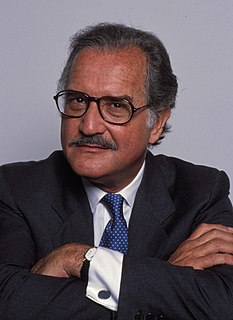
Carlos Fuentes Macías was a Mexican novelist and essayist. Among his works are The Death of Artemio Cruz (1962), Aura (1962), Terra Nostra (1975), The Old Gringo (1985) and Christopher Unborn (1987). In his obituary, The New York Times described Fuentes as "one of the most admired writers in the Spanish-speaking world" and an important influence on the Latin American Boom, the "explosion of Latin American literature in the 1960s and '70s", while The Guardian called him "Mexico's most celebrated novelist". His many literary honors include the Miguel de Cervantes Prize as well as Mexico's highest award, the Belisario Domínguez Medal of Honor (1999). He was often named as a likely candidate for the Nobel Prize in Literature, though he never won.

The Revolutionary Nationalist Movement is a centre-right conservative political party in Bolivia and was the leading force behind the Bolivian National Revolution from 1952 to 1964. It influenced much of the country's history since 1941.

The Ibero-American University is a Mexican private institution of higher education, sponsored by the Society of Jesus. In 2009, the UIA received the SEP-ANUIES Prize as the best private university in Mexico. The Ibero's flagship campus is located in the Santa Fe district of Mexico City. It is ranked by QS World University Rankings as 701-750 worldwide and 7 in Mexico.
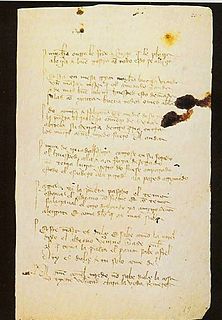
The Book of Good Love, considered to be one of the masterpieces of Spanish poetry, is a pseudo-biographical account of romantic adventures by Juan Ruiz, the Archpriest of Hita, the earliest version of which dates from 1330; the author completed it with revisions and expansions in 1343.
Comandante Rolando Morán was the nom de guerre of Ricardo Arnoldo Ramírez de León, leader of Guatemalan National Revolutionary Unity (URNG), an armed Guatemalan communist resistance organization. At the time of his death he held the post of Secretary General of the URNG.
The term Peruvian literature not only refers to literature produced in the independent Republic of Peru, but also to literature produced in the Viceroyalty of Peru during the country's colonial period, and to oral artistic forms created by diverse ethnic groups that existed in the area during the prehispanic period, such as the Quechua, the Aymara and the Chanka South American native groups.

Alan Knight is a professor and researcher of Latin American history and former professor at the University of Oxford in England. His work has been recognized with several awards, including the Order of the Aztec Eagle from the Mexican government.

Eduardo Caballero Calderón was a Colombian journalist and writer. As a journalist, he worked for the main Colombian newspapers, including El Tiempo and El Espectador. Also he was a diplomat from Colombia in Peru, Argentina, Spain and France. Caballero was elected as congressman two times for the department of Boyacá and was mayor of Tipacoque.

Socialism of the 21st century is an interpretation of socialist principles first advocated by German sociologist and political analyst Heinz Dieterich and taken up by a number of Latin American leaders. Dieterich argued in 1996 that both free-market industrial capitalism and 20th-century socialism have failed to solve urgent problems of humanity such as poverty, hunger, exploitation of labour, economic oppression, sexism, racism, the destruction of natural resources and the absence of true democracy. Socialism of the 21st century has democratic socialist elements, but it also resembles Marxist revisionism.
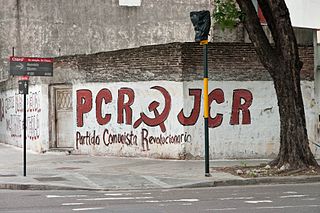
The Revolutionary Communist Party is a Marxist–Leninist–Maoist in Argentina.
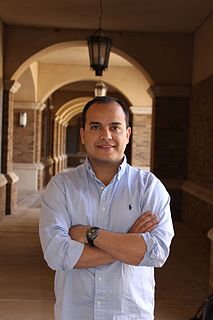
Ruben Varona is a Colombian author and literary critic, specialized in crime and historical fiction.
Carlos Rangel (1929–1988) was a Venezuelan writer, a liberal, journalist and diplomat.

The Platino Award for Best Director is one of the Platino Awards, Ibero-America's film awards presented annually by the Entidad de Gestión de Derechos de los Productores Audiovisuales (EGEDA) and the Federación Iberoamericana de Productores Cinematográficos y Audiovisuales (FIPCA).
The following is a timeline of the history of the city of Cienfuegos, Cuba.
Andoni Canela Urizar is a Spanish photographer who specializes in nature and environment photography.
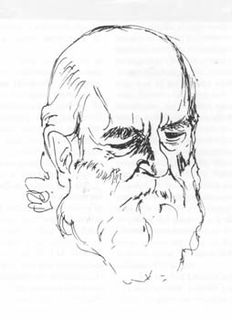
José Manuel Briceño Guerrero was a Venezuelan writer, philologist and philosopher. A large part of his work was published under the pen-name Jonuel Brigue.
Populism refers to a range of political stances that emphasise the idea of "the people" and often juxtapose this group against "the elite". This article focuses on populism in Latin America.
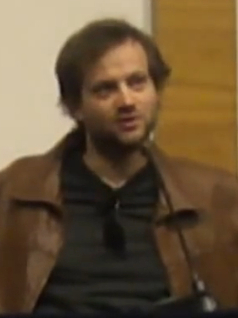
Axel Phillip Kaiser Barents-Von Hohenhagen is a Chilean writer, lawyer and political scientist.

Carlos Hilario Pereyra Gómez was a Mexican lawyer, diplomat, writer and historian. His background was highly influenced by late 19th century Positivism, so this influence is denoted in his works. He was also a Hispanist, defender of the historical and cultural legacy of Spain in Spanish America and critic of the American Interventionism policy in Latin America.

Guide to the Perfect Latin American Idiot is an essay by Plinio Apuleyo Mendoza, Carlos Alberto Montaner and Álvaro Vargas Llosa published in 1996. The authors analyze Latin American history and the way of thinking of both the Latin American political elites and intellectuals. The same year an edition was published in Spain with an additional chapter and a different prologue.














